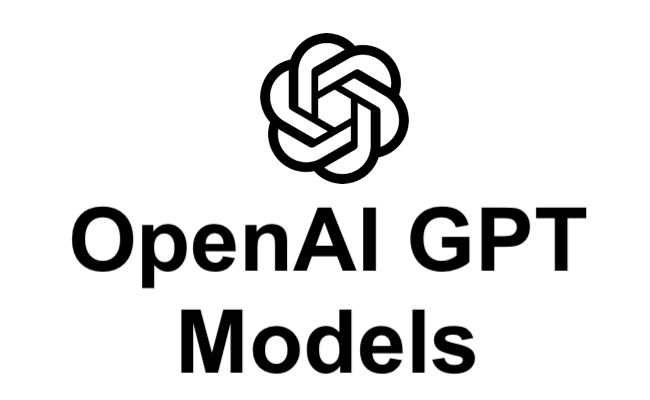The OpenAI API offers a variety of models, each with unique capabilities and varying price points, catering to different needs. Additionally, these models can be customized for specific use cases through fine-tuning.
OpenAI is excited to announce the preview release of GPT-4 Turbo, which boasts a 128k context window, and an updated GPT-3.5 Turbo, featuring a 16k context window. These models are enhanced with improved instruction following, a JSON mode, more reproducible outputs, and the capability for parallel function calling.
| MODEL | DESCRIPTION |
|---|---|
| GPT-5 | GPT-5 Is under training as of today. |
| GPT-4 and GPT-4 Turbo | A set of models that improve on GPT-3.5 and can understand as well as generate natural language or code |
| GPT-3.5 | A set of models that improve on GPT-3 and can understand as well as generate natural language or code |
| GPT base | A set of models without instruction following that can understand as well as generate natural language or code |
Continuous GPT Models Upgrades
OpenAI consistently upgrades its models to enhance performance and capabilities. Dev Team ensures that designations such as gpt-3.5-turbo, gpt-4, and gpt-4-32k always refer to the latest version of the respective models. The exact version used in a request can be confirmed by examining the response object, which includes details like ‘gpt-3.5-turbo-0613‘.
In addition to these continuously updated models, OpenAI also offers static model versions. These versions remain available for at least three months post the introduction of an updated model, providing developers with consistent performance during this period.
OpenAI is also introducing a new approach to model updates, inviting contributions from users through evals. These contributions are intended to help refine the models for various use cases. Interested individuals can participate by accessing the OpenAI Evals repository.
For users who wish to stay current with the latest advancements, OpenAI recommends using standard model names like gpt-4 or gpt-3.5-turbo. Meanwhile, temporary snapshot models, which have predetermined deprecation dates and their respective replacements, are also available for use until their deprecation.
| MODEL NAME | DISCONTINUATION DATE | REPLACEMENT MODEL |
|---|---|---|
gpt-3.5-turbo-0613 | Jun 13, 2024 | gpt-3.5-turbo-1106 |
gpt-3.5-turbo-0301 | Jun 13, 2024 | gpt-3.5-turbo-1106 |
Learn more about model deprecation on our deprecation page.
GPT-5
GPT-5 Model is under training as of today.
GPT-4 and GPT-4 Turbo
GPT-4 is a large multimodal model capable of processing both text and image inputs and delivering text outputs. This model outperforms all previous models in terms of accuracy, attributed to its expansive general knowledge base and enhanced reasoning abilities. GPT-4 is accessible through the OpenAI API for paying customers.
Similar to gpt-3.5-turbo, GPT-4 is optimized for conversational applications but also excels in traditional completion tasks when used via the Chat Completions API. Users can learn more about utilizing GPT-4 effectively by referring to the comprehensive GPT guide provided by OpenAI.
| MODEL | DESCRIPTION | CONTEXT WINDOW | TRAINING DATA |
|---|---|---|---|
| gpt-4-1106-preview | New GPT-4 Turbo The latest GPT-4 model with improved instruction following, JSON mode, reproducible outputs, parallel function calling, and more. Returns a maximum of 4,096 output tokens. This preview model is not yet suited for production traffic. Learn more. | 128,000 tokens | Up to Apr 2023 |
| gpt-4-vision-preview | New GPT-4 Turbo with vision Ability to understand images, in addition to all other GPT-4 Turbo capabilties. Returns a maximum of 4,096 output tokens. This is a preview model version and not suited yet for production traffic. Learn more. | 128,000 tokens | Up to Apr 2023 |
| gpt-4 | Currently points to gpt-4-0613. See continuous model upgrades. | 8,192 tokens | Up to Sep 2021 |
| gpt-4-32k | Currently points to gpt-4-32k-0613. See continuous model upgrades. | 32,768 tokens | Up to Sep 2021 |
| gpt-4-0613 | Snapshot of gpt-4 from June 13th 2023 with improved function calling support. | 8,192 tokens | Up to Sep 2021 |
| gpt-4-32k-0613 | Snapshot of gpt-4-32k from June 13th 2023 with improved function calling support. | 32,768 tokens | Up to Sep 2021 |
While GPT-4 and GPT-3.5 models may perform similarly on many basic tasks, GPT-4 demonstrates a marked improvement in more complex reasoning scenarios. It significantly outperforms all previous models in these situations, showcasing its advanced capabilities in handling intricate and demanding tasks.
Multilingual capabilities
GPT-4 represents a significant leap forward in the field of large language models, surpassing both its predecessors and most state-of-the-art systems as of 2023. These competing systems often rely on benchmark-specific training or meticulous hand-engineering. In the context of the MMLU benchmark, an English-language suite comprised of multiple-choice questions across 57 subjects, GPT-4’s superiority is evident.
It not only considerably outperforms existing models in English but also exhibits robust performance in various other languages, highlighting its versatility and advanced language processing capabilities.
GPT-3.5 Models
The GPT-3.5 models are designed to understand and generate both natural language and code effectively. Within the GPT-3.5 family, the most capable and cost-effective model is gpt-3.5-turbo. This model has been specially optimized for chat-based applications using the Chat Completions API. However, it also performs admirably in traditional completion tasks, showcasing its versatility and efficiency in various language processing scenarios.
| MODEL | DESCRIPTION | CONTEXT WINDOW | TRAINING DATA |
|---|---|---|---|
| gpt-3.5-turbo-1106 | New Updated GPT 3.5 Turbo The latest GPT-3.5 Turbo model with improved instruction following, JSON mode, reproducible outputs, parallel function calling, and more. Returns a maximum of 4,096 output tokens. Learn more. | 16,385 tokens | Up to Sep 2021 |
| gpt-3.5-turbo | Currently points to gpt-3.5-turbo-0613. | 4,096 tokens | Up to Sep 2021 |
| gpt-3.5-turbo-16k | Currently points to gpt-3.5-turbo-0613. | 16,385 tokens | Up to Sep 2021 |
| gpt-3.5-turbo-instruct | Similar capabilities as GPT-3 era models. Compatible with legacy Completions endpoint and not Chat Completions. | 4,096 tokens | Up to Sep 2021 |
| gpt-3.5-turbo-0613 | Legacy Snapshot of gpt-3.5-turbofrom June 13th 2023. Will be deprecated on June 13, 2024. | 4,096 tokens | Up to Sep 2021 |
| gpt-3.5-turbo-16k-0613 | Legacy Snapshot of gpt-3.5-16k-turbo from June 13th 2023. Will be deprecated on June 13, 2024. | 16,385 tokens | Up to Sep 2021 |
| gpt-3.5-turbo-0301 | Legacy Snapshot of gpt-3.5-turbofrom March 1st 2023. Will be deprecated on June 13th 2024. | 4,096 tokens | Up to Sep 2021 |
We recommend using gpt-3.5-turbo over the other GPT-3.5 models because of its lower cost and improved performance.
GPT Base
GPT base models are adept at understanding and generating both natural language and code. However, unlike some of their advanced counterparts, they are not specifically trained for instruction following. These base models serve as replacements for the original GPT-3 base models and are designed to work with the legacy Completions API.
For most users, it is recommended to opt for the GPT-3.5 or GPT-4 models. These newer models offer enhanced capabilities, including improved instruction following, making them more suitable for a wider range of applications and more complex tasks.
GPT Store
More than 3 millions GPTs are available in GPT Store.
Read more articles about GPT Models in our Blog.

